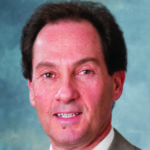By Franklin Gaylis MD, FACS

SAN DIEGO — The South African Jewish American Community (SAJAC) is sponsoring a virtual presentation from 4-6 p.m., Thursday, Oct. 15, addressing genetic disorders related to our Ashkenazi Jewish heritage. The goal of this presentation is to increase an awareness of diseases caused by genetic abnormalities amongst Ashkenazi Jews, suggest screening tests that can identify them and interventions to reduce the risk of getting such diseases.
A brief historical perspective explaining the reason Ashkenazi Jews have a very distinct genetic pool will be discussed. In preparation for the symposium, we hope this outline will help you understand this important topic which can have a significant impact on one’s health.
Why is the topic important?
- 1 in 4 Ashkenazi Jews carry an autosomal recessive mutation (abnormal change of the DNA within a gene) for certain serious diseases including Tay-Sachs, Gaucher Disease, cystic fibrosis, spinal muscular atrophy and several others. These carriers (people who have the abnormal gene) are healthy; however, if they marry someone with the same mutation, there is a 25% chance that their child will be affected. The disease occurs only when both inherited copies of the gene have the mutation.
- Approximately 80% of babies affected by genetic diseases are born to parents without any family history of the disease and genetic screening can play an important role in planning for a healthy family.
- The breast/ovarian cancer associated BRCA 1/2 gene mutations (abnormal gene because of a change in the DNA ) occur 10 times more commonly in Ashkenazi Jews compared to the general US population (1/40 vs 1/400). These are autosomal dominant mutations meaning the disease can occur when only 1 copy of the abnormal gene is present.
- Having a BRCA 1/2 mutation increases the risk of early-onset breast and ovarian cancer. Mutation carriers have up to a 70% risk of breast cancer and an 11% to 40% risk of ovarian cancer by age 70 years. The risks for prostate, pancreatic, melanoma and male breast cancer are also increased.
What can one do if one is a carrier?
- First one needs to be tested. This requires a simple swab from one’s mouth or saliva which contains cells from which the DNA can be sampled and analyzed. This testing may also be done on blood.
- Carriers for the autosomal recessive diseases, which can severely impact a child’s health have several options: take a chance, not have children, have prenatal diagnosis to terminate affected pregnancies, or IVF with pre-implantation genetic testing to only implant unaffected embryos.
- Female carriers of BRCA 1/2 mutations can undergo a preventative/prophylactic mastectomy (breast removal) to prevent the development of breast cancer or alternatively undergo intense screening. Timely removal of the ovaries can significantly reduce the risk of developing ovarian cancer
- Male carriers of BRCA 1/2 should undergo intense screening for prostate cancer at a younger age (40 years)
The Symposium:
1st HOUR 4-5 PM PST – Presentation by Speakers
- History of the Ashkenazi Population. This includes a brief overview followed by a brief introduction to field of genetics that I will present.
- How Our Genes Impact Our Health. A basic introduction to genetics, why genetic abnormalities can cause disease, what tests are available to detect these abnormalities and what can be done to prevent genetic related diseases presented by Dr A Karim Kader MD, PhD.
- Prostate Cancer from a personal perspective presented by Clive Essakow JD.
- Dealing with being a BRCA 2 carrier, a personal perspective by Sarah Abelsohn.
2nd HOUR 5-6 PM PST – Breakout Sessions with Experts
The Breakout Sessions are intended for viewers to ask personal questions of several experts:
- Breast Session: Dr Linda Smith MD, a breast surgeon and genetics expert together with Sarah Abelsohn.
- Prostate Session: Drs Karim Kader, Stacy Loeb, and myself together with Clive Essakow.
- Genetic counselling: Peggy Cottrell from Sharsheret
- Carrier screening: Emily Goldberg from JScreen
Registration for the event is necessary. Go to the home page of https://www.sajac.com to register.
*
Franklin Gaylis, M.D., is Chief Scientific Officer at Genesis Healthcare Partners and a UCSD voluntary Professor of Urology